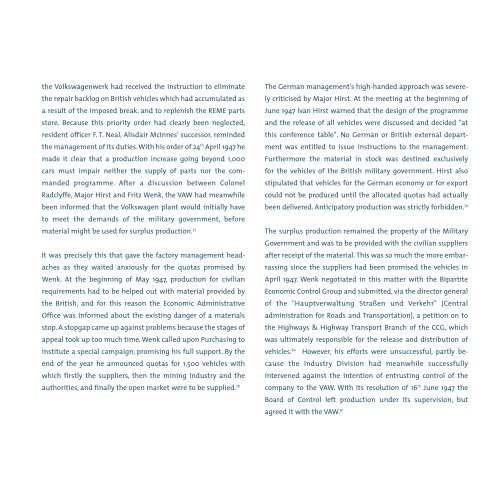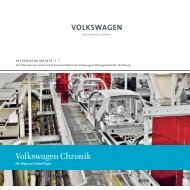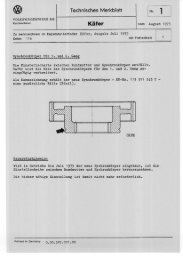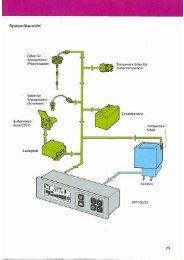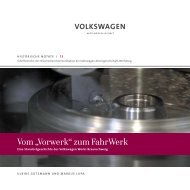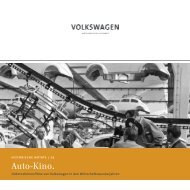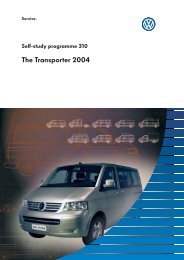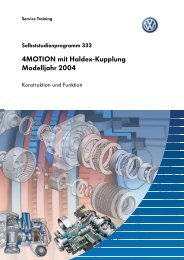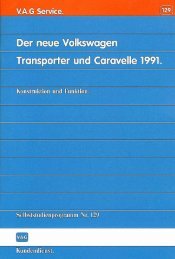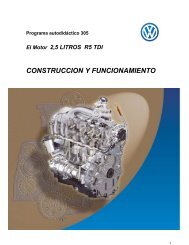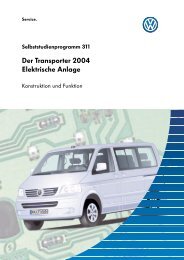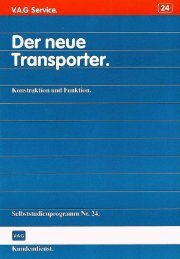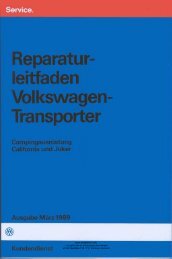HN 2: The British and their Works
HN 2: The British and their Works
HN 2: The British and their Works
Create successful ePaper yourself
Turn your PDF publications into a flip-book with our unique Google optimized e-Paper software.
the Volkswagenwerk had received the instruction to eliminate<br />
the repair backlog on <strong>British</strong> vehicles which had accumulated as<br />
a result of the imposed break, <strong>and</strong> to replenish the REME parts<br />
store. Because this priority order had clearly been neglected,<br />
resident officer F. T. Neal, Alisdair McInnes’ successor, reminded<br />
the management of its duties. With his order of 24th April 1947 he<br />
made it clear that a production increase going beyond 1,000<br />
cars must impair neither the supply of parts nor the comm<strong>and</strong>ed<br />
programme. After a discussion between Colonel<br />
Radclyffe, Major Hirst <strong>and</strong> Fritz Wenk, the VAW had meanwhile<br />
been informed that the Volkswagen plant would initially have<br />
to meet the dem<strong>and</strong>s of the military government, before<br />
material might be used for surplus production. 77<br />
It was precisely this that gave the factory management headaches<br />
as they waited anxiously for the quotas promised by<br />
Wenk. At the beginning of May 1947, production for civilian<br />
requirements had to be helped out with material provided by<br />
the <strong>British</strong>, <strong>and</strong> for this reason the Economic Administrative<br />
Office was informed about the existing danger of a materials<br />
stop. A stopgap came up against problems because the stages of<br />
appeal took up too much time. Wenk called upon Purchasing to<br />
institute a special campaign, promising his full support. By the<br />
end of the year he announced quotas for 1,500 vehicles with<br />
which firstly the suppliers, then the mining industry <strong>and</strong> the<br />
authorities, <strong>and</strong> finally the open market were to be supplied. 78<br />
<strong>The</strong> German management’s high-h<strong>and</strong>ed approach was severely<br />
criticised by Major Hirst. At the meeting at the beginning of<br />
June 1947 Ivan Hirst warned that the design of the programme<br />
<strong>and</strong> the release of all vehicles were discussed <strong>and</strong> decided "at<br />
this conference table". No German or <strong>British</strong> external department<br />
was entitled to issue instructions to the management.<br />
Furthermore the material in stock was destined exclusively<br />
for the vehicles of the <strong>British</strong> military government. Hirst also<br />
stipulated that vehicles for the German economy or for export<br />
could not be produced until the allocated quotas had actually<br />
been delivered. Anticipatory production was strictly forbidden. 79<br />
<strong>The</strong> surplus production remained the property of the Military<br />
Government <strong>and</strong> was to be provided with the civilian suppliers<br />
after receipt of the material. This was so much the more embarrassing<br />
since the suppliers had been promised the vehicles in<br />
April 1947. Wenk negotiated in this matter with the Bipartite<br />
Economic Control Group <strong>and</strong> submitted, via the director general<br />
of the "Hauptverwaltung Straßen und Verkehr" (Central<br />
administration for Roads <strong>and</strong> Transportation), a petition on to<br />
the Highways & Highway Transport Branch of the CCG, which<br />
was ultimately responsible for the release <strong>and</strong> distribution of<br />
vehicles. 80 However, his efforts were unsuccessful, partly because<br />
the Industry Division had meanwhile successfully<br />
intervened against the intention of entrusting control of the<br />
company to the VAW. With its resolution of 16th June 1947 the<br />
Board of Control left production under its supervision, but<br />
agreed it with the VAW. 81


